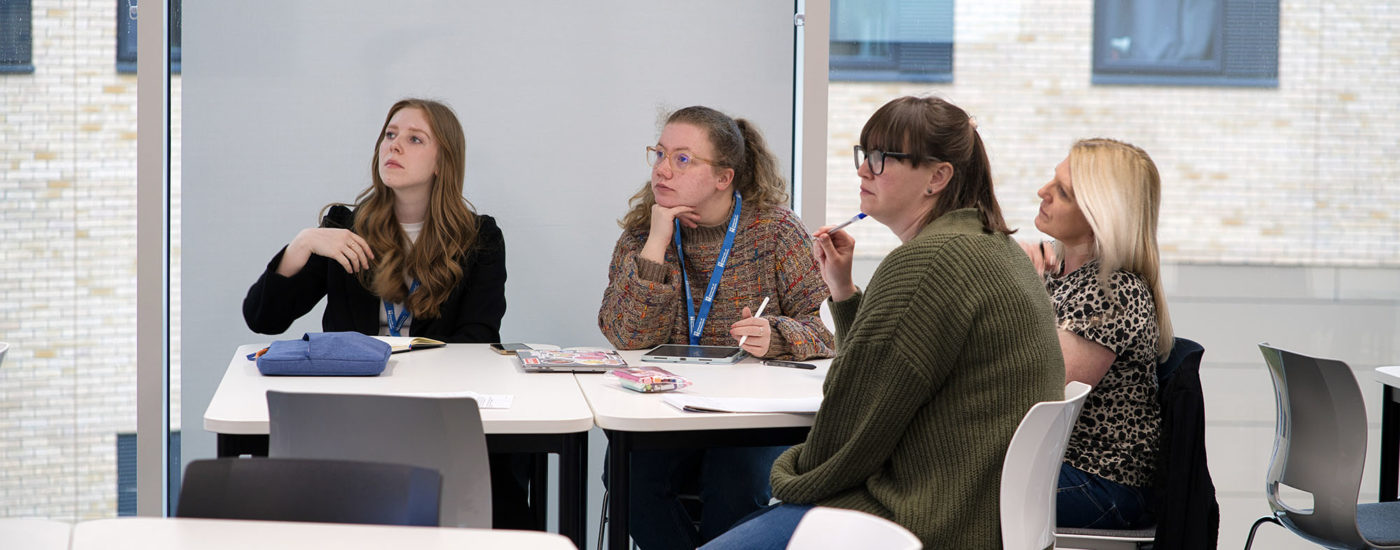Senior Lecturer in Psychological Therapies
Postgraduate Diploma in Low Intensity Senior Practice

Postgraduate Diploma in Low Intensity Senior Practice
Key Facts
-
Level
PostgraduatePG PGDip
-
Duration
2 years Part Time
-
Starting
January
JAN
-
Funded by HEE
-
Waterside
Updated 23/04/2025
Updated 23/04/2025
Get in touch
For questions regarding study and admissions please contact us:
UK STUDENTS ENQUIRIES
Overview
Ensuring the supply of staff trained to deliver high quality care for children and young people’s mental health (CYP MH) is critical to delivering the NHS Long Term Plan (LTP) commitments. The availability of appropriate CYPMH supervision is emerging as a key limiting factor for any options of expansion of MHSTs and other CYP MH services beyond current plans. It is also becoming increasingly clear that in order to reach the access target of 345,000 by 23/24, and 100% coverage by the end of the LTP period, we will need to equip our workforce to offer a broader range of interventions to children, young people and families from a wider range of backgrounds and in spaces beyond the clinic and educational settings.
This two year programme will provide trainees an opportunity to extend the clinical skillset of their existing roles, enhance their specialisation for community and educational settings respectively, expand supervisory capacity, support workforce retention within the low intensity profession and enable widened participation and social mobility within this workforce.
Highlights
- Equips supervisor trainees with knowledge to guide low-intensity practitioners in their clinical practice, ethical and legal frameworks, and multi-agency working.
- Enables supervisor trainees to broaden their underpinning knowledge of psychological theories and practices of supervising low-intensity supervisees and the importance of case management supervision
- Enables supervisor trainees to reflect on their skills, with an emphasis on demonstrating a number of key characteristics central to delivering effective supervision
Entry Requirements
- Qualified WPCYP/EMHP with 1-years post qualification
- Full CBT training and BABCP accreditable
or
- Previous work as a Supervising/Senior PWP e.g. in Adult IAPT
or
- Significant CBT training within core profession (e.g. Psychologist).
In addition to the University’s General Requirements for Entry applicants should normally have access to a suitable context in which they work with children and young people, and to an appropriate supervisor.
Given the specialist and bespoke nature of this degree, prospective trainees will initially be identified through the joint action of the University of Northampton programme leader, and participating NHS services and linked organisations, who will identify appropriate participants from within their workforces. Additional programme places for non-CYP-IAPT related applicants may be considered subject to programme places being available.
During the period of training trainees will be required to have supervisees, to be delivering regular clinical supervision, to be able to video record their sessions with supervisees, and to use Children and Young People Improving Access to Psychological Therapies routine outcome measures. Trainees therefore must have been recruited to a relevant organisation, and should be working in services that have access to colleagues in specialist Child and Adolescent Mental Health Services for consultation and where they can refer children and young people for specialist multidisciplinary care as necessary. They will also require clinical caseloads with the clinical presentations and sub groups as specified in modules 3 and 4.
Suitability for the programme will be ascertained by an application form and interview. The interview will focus on the suitability of the applicant to work at Level 7, and their suitability to work with supervisees in children and young people’s services. A proforma will be developed to support standardisation of the interview process, and to enable fair and transparent feedback to candidates.
Given the nature of the work expected as a component of the programme, and its emphasis on local Child and Adolescent Mental Health Services transformation, this programme will not be available to international applicants.
During the period of training, trainees will be required to:
- Supervise trainee or qualified clinicians who hold a caseload of children with mild to moderate anxiety, behavioural difficulties, low mood or self-harm.
- Be delivering regular clinical supervision and recording these sessions
- Manage a Clinical caseload of Children and Young People presenting with advanced anxiety presentations
- Work with Children and Young People with a diagnosis of Autism and/or Learning Disabilities.
- To reflect on their clinical practice, using a variety of methods including reflective models, supervision of supervision and observational feedback.
Confirmation of Disclosure and Barring Service (DBS) checks will be required for trainees being admitted to this programme.
Course Content
The programme uses lectures, skills workshops, seminars, work-based learning, and supervision of supervision to support trainees in developing knowledge and critical understanding of case management supervision for evidence-based low intensity working in CAMH and MHST (Mental Health School Teams). All students must have access to at least one supervisee who is currently a student CWP or student EMHP or qualified CWP, or qualified EMHP working as a low-intensity clinician.
The programme is suitable for staff whose role includes supervising practitioners who deliver brief evidence-based interventions for children, adolescents and families.
During the period of training, students are required to have supervisees. They will be required to be delivering regular clinical case management supervision, to be able to video record their sessions with supervisees, and to use the range of Children and Young People Improving Access to Psychological Therapies Routine Outcome Measures.
The Diploma places a strong emphasis on work-based learning, and trainees will develop and assess the knowledge and skills developed in workshops, individual and online learning contexts, supported by academic staff as well as supervisors in learning sets in their places of work. The certificate consists of 4- x 30 credit modules assessed at Level 7.
Trainees’ participation in the Diploma is with the full support of their employer, who will nominate trainees to be considered for the Diploma.
The first year of the programme equips trainees with the skills to deliver effective low-intensity case management supervision to support the structured, evidence-based CYP IAPT way of working with children, young people and families. Specifically, where there are common mental health problems of low mood, anxiety, and behavioural challenges.
In the second year of the programme, trainees will focus on enhancing their competency across a range of early interventions and expand the breadth of low intensity support available for children, young people, and their families. Practitioners will develop an understanding of, and interventions for, advanced anxiety presentations, trauma informed practice principles and approaches and difficulties relating to school refusal. In addition, trainees will develop their skills in working with Children and Young People (CYP) with Autism and Learning Disabilities, developing appropriate skills and knowledge to deliver effective low-intensity interventions with this client group to become more inclusive practitioners.
Please note the modules shown here relate to the academic year 25/26. The modules relating to the academic year 26/27 will be available from June 2026.
Fees and Funding
This is a closed course externally funded by HEE.


